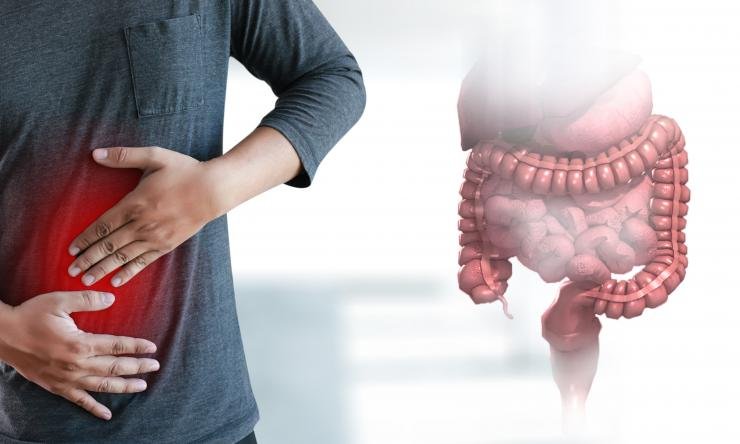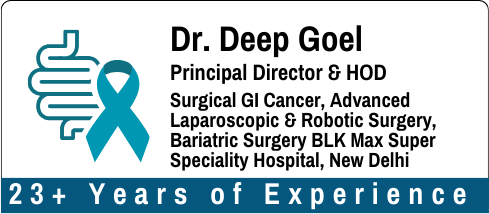What Should You Eat Post-Colorectal Surgery?

Colorectal surgery is a procedure to remove a blocked or unhealthy part of the large intestine. To recover quickly and stay healthy after the surgery, following certain guidelines, including the right diet, is essential.
Cancer Research mentions that it might take some time for your bowel function to return to normal after treatment. To understand how important this is, patients are recommended to avoid certain foods that could bother the intestines or worsen the after-surgery effects.
This article explores the dietary considerations after colorectal cancer treatment, the nutritional guidelines, foods to avoid, and more.
What Is Colon Cancer?
Colon cancer, also known as colorectal cancer, is a kind of cancer that starts in the colon or rectum, which are both sections of the large intestine. It often begins as tiny, noncancerous polyps that, if not removed, can progress to malignancy.
What Is Colon Cancer Surgery?
Colon cancer surgery, also known as colorectal surgery, involves the removal of cancerous tissue from the colon or rectum. The primary goal is to eliminate cancer cells and prevent the spread of the disease. Surgeons may remove a portion of the colon (partial colectomy) or the entire colon (total colectomy) based on the cancer’s extent. In some cases, surrounding lymph nodes are also removed.
Dr. Deep Goel, a distinguished colorectal surgeon, specializes in advanced treatments for colon cancer. With extensive expertise, he provides personalized care, utilizing innovative surgical techniques for optimal patient outcomes. Dr. Goel is committed to advancing colorectal cancer care, ensuring patients receive compassionate and effective treatment under his expert guidance.
What Should Be The Dietary Considerations After Colorectal Surgery?
Surgery is the primary treatment for colorectal cancer and may involve removing some or all of the colon. Sometimes, postoperative damage may occur in the gastrointestinal tract organs. If this happens, certain foods that a person eats may irritate the intestines or worsen the side effects of surgery.
Cancer Research suggests eating small and frequent meals, taking small mouthfuls, and chewing food slowly, as well as making the following dietary choices:
- Eating foods that are high in protein and calories, such as meat, fish, and eggs
- Eating foods that are low in fiber, such as white bread, white pasta, and peeled cooked vegetables
- Drinking plenty of fluids
- Reducing caffeine intake, as caffeine can stimulate the bowels
What Are The Dietary Considerations After Chemotherapy And Radiotherapy?
People may also need to undergo chemotherapy and radiation therapy for colon cancer. These treatments can cause diarrhea. However, this should subside a few weeks after treatment ends. In the meantime, a person can take medications to manage the diarrhea. They should also avoid foods that can worsen diarrhea.
The National Cancer Institute (NCI) suggests:
- Drinking plenty of fluids, such as water, flat ginger ale, and sports drinks
- Eating 5–6 small meals per day
- Consuming foods that are high in potassium and sodium, such as mashed potatoes and bananas
- Eating low-fiber foods such as plain yogurt and white toast
Chemotherapy can also cause a person to develop a sore mouth and nausea. These side effects should resolve once treatment is over. However, to ease mouth sores, a person can:
- Eat and cook foods that are easy to chew
- Use sauces, such as gravy, to soften food
- Drink using a straw
- Eat using a small spoon to take smaller bites
- Avoid tomatoes, spicy foods, and citrus fruits
If a person is experiencing nausea, they should choose foods that appeal to them and are gentle on the stomach, such as bananas, toast, and applesauce.
What Foods Might Upset The Recovery?
The following foods may cause an upset stomach after treatment for bowel cancer:
- Fruits and vegetables that are high in fiber
- Cabbage
- Onions
- Brussels sprouts
- Pulses such as baked beans and lentils
- Fizzy drinks and beer
- Very rich or fatty foods
Doctors may also recommend to avoid:
- Citrus fruits and juices
- Spicy foods
- Raw vegetables
- Sharp or crunchy foods
Dr. Deep Goel advises, “In the early stages of recovery after colon cancer surgery, thoughtful dietary choices can make a significant impact. Opting for easily digestible, high-protein foods like lean meats and eggs helps in fast recovery. Patients should choose low-fiber options such as white bread and cooked vegetables to minimize strain. Embracing these food tips supports healing, enhances energy levels, and contributes to overall well-being during the critical early recovery phase.”
A happy patient of Dr. Deep says, “Dr. Deep Goel’s expertise and compassionate care during my colon cancer journey were truly remarkable. His personalized approach and innovative surgical techniques significantly impacted my recovery. The dietary tips provided post-surgery were instrumental in easing discomfort and enhancing my overall well-being.”
Another patient said, “I am grateful for the exceptional care I received from Dr. Deep Goel. His dedication to advancing colorectal cancer treatment is evident. The dietary considerations post-chemotherapy were insightful, and his guidance was crucial to my recovery. I highly recommend Dr. Goel for his expertise and patient-focused approach.”
How Much Does Colon Cancer Surgery Cost In India?
The cost of colorectal cancer surgery in India typically ranges from ₹2,00,000 to ₹5,50,000 ($3,000 to $8,000). The cost of colon cancer surgery in India can vary depending on the type of surgery, hospital facilities, surgeon’s fees, and the patient’s overall health. It’s important to note that the figures provided here are approximate and can vary based on individual cases.
Several factors contribute to the cost variation:
- Type of Surgery: The complexity and type of surgery required for colorectal cancer treatment can significantly impact the cost. Surgeries can range from minimally invasive procedures to more extensive surgeries.
- Hospital Facilities: The choice of hospital and its facilities can influence the cost. High-end, private hospitals may charge higher than government or smaller healthcare facilities.
- Surgeon’s Fees: The experience and reputation of the surgeon performing the procedure can also affect the overall cost. Surgeon fees are often a significant component of the total expense.
- Location: The cost of living in different cities within India varies, which can impact the overall cost of medical procedures.
Thus, patients must consult healthcare providers, discuss their cases, and obtain detailed cost estimates.
Conclusion
After colon cancer treatment, a person’s diet should focus on good nutrition. People may find it beneficial to eat foods that are soft, low in fiber, and easy to digest. A person should be able to return to their usual diet once their bowels settle after treatment. This can take a few months, depending on the type of treatment. Once an individual recovers or treatment side effects lessen, they can eat their typical foods while maintaining a nutritious diet.
FAQs:
Q1: Are carbonated beverages recommended during colorectal cancer recovery?
A: No, fizzy drinks and beer are best avoided as they may upset the stomach.
Q2: Can I resume a regular exercise routine immediately after colorectal surgery?
A: It’s advisable to consult your healthcare provider before resuming an exercise routine post-surgery.
Q3: Are there specific cooking methods recommended during the recovery phase?
A: Yes, using sauces like gravy to soften food can be beneficial in easing discomfort during recovery.
Q4: Is there a recommended duration for post-chemotherapy dietary modifications?
A: Dietary adjustments may be needed until side effects subside; consult your healthcare provider for guidance.
Q5: Can I use over-the-counter medications to manage postoperative discomfort?
A: Always consult your healthcare provider before using over-the-counter medications to ensure they align with your recovery plan.
Read More : What is the Success Rate of Minimally Invasive Surgery in Treating Pancreatic Cancer?

